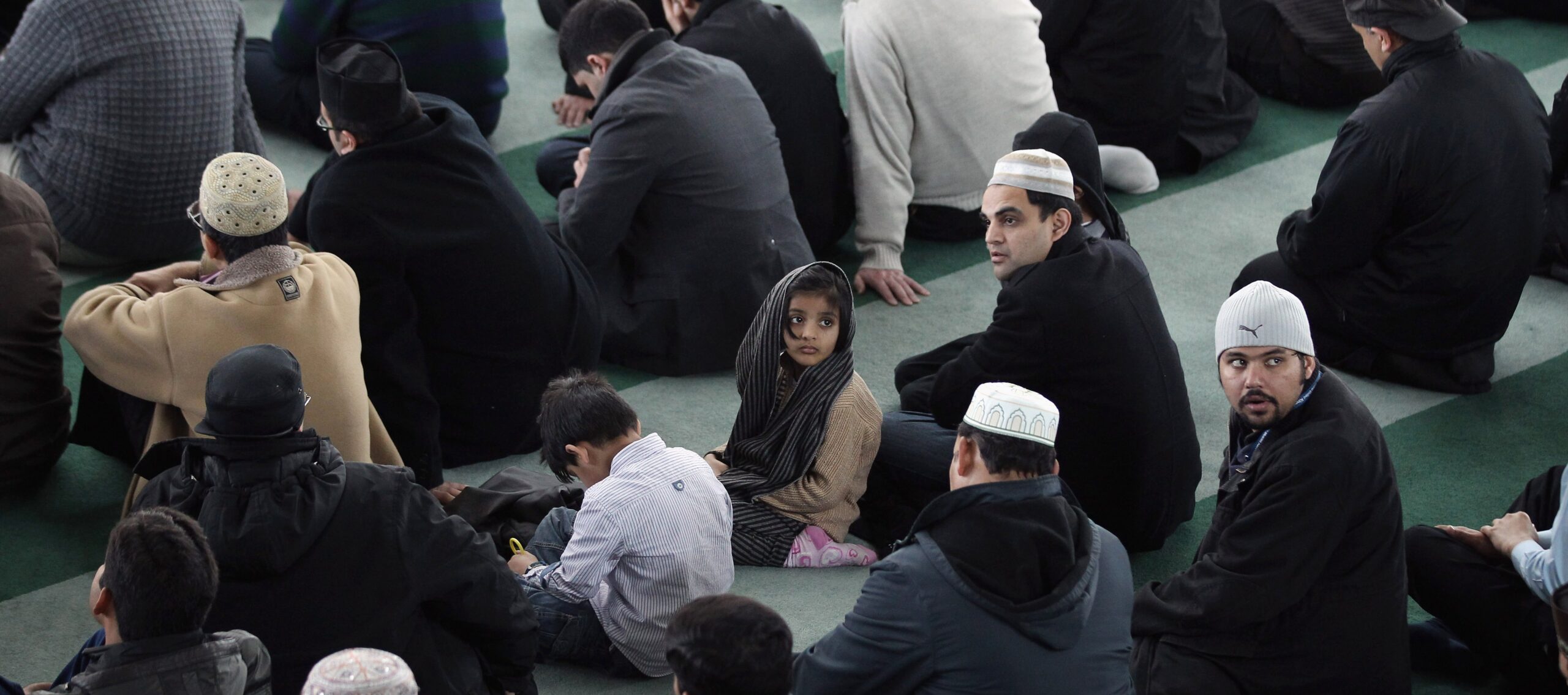Meet the young Imams fighting Islamophobia and extremism, one Twitter DM at a time

“It’s about letting people know, look, we are just like them.”

Sharp suited, with carefully groomed hair, Ahmedi, 25, is one of the youngest Imams in the country. He grew up in Manchester and has the twang of a northerner recently relocated. “On BBC London radio, they said that some Imams might see me as being too young… but there’s really not a specific age limit.”
Ahmedi is focused on changing the PR image of the Muslim community. His days are filled with direct messaging journalists on Twitter, taking them for coffees in Pret to speak about his faith. “I think who journalists choose to represent Islam is really interesting. We want to get the voices of moderate Muslims out there,” he says. “We are here to engage with people and show them what a true Muslim is. It’s about letting people know, look, we are just like them.”
Like most people in their twenties, Sabah grew up online and relies on social media for much of his work. “We want to give people the opportunity to talk, so they can’t say they don’t know how to contact a Muslim. That’s why I have Twitter.”
Misconceptions around Islam continue to abound in the British media. Ahmedi’s Twitter DMs are a brave act in an increasingly polarised society. But he isn’t alone: he is part of a growing generation of young Imams using the internet to create an open conversation around Islam. “There are actually loads of us,” he says.
In Hussein Kesvani’s new book Follow me, Akhi, the writer details the burgeoning online world of Muslims in the UK, the majority of which are under 25, and documents how Imams are beginning to use social media to bring people closer to their faith. Kesvani looks to the future: a society in which the young rely on the internet for faith and community. Young Imams are not new, but their inventiveness continues to encourage community to thrive on unexpected platforms.
Sabah introduces me to Qamar Zafar, the national executive of social media for the Ahmadiyya youth organisation, located at the Morden mosque. Like Sabah, he is 25 and trained to become an Imam straight after his GCSEs. Qamar grew up in Southfields where the Ahmadiyya caliph used to reside. As a teenager Qamar didn’t really know what an Imam was. At first, he wanted to become a politician or a lawyer. “But then I started to realise they weren’t all that good,” he says. Eventually, he heard about the recently opened Imam school, where he graduated two years ago. Now, his goal is to look out for other young Muslims.
Qamar’s team make reactive current affairs videos for YouTube and Twitter. In the wake of the Christchurch shootings, a massacre which saw 49 Muslims murdered, Qamar posted a different video to his Twitter profile. “We will not stop, we will do everything and anything we can do to get rid of this hatred,” Qamar said, speaking to camera outside the Morden mosque. The video has over 20,000 views.
In the weeks after Christchurch, Qamar posted more videos, littered with the hashtags #TurnToLove, #NoRacismNoFascism. “It’s not just about combating the negative stereotypes of Islam. It’s also about safeguarding those young Muslims who might be at risk of being manipulated by extremist views,” says Qamar. “So we felt like we had to go out on social media and actually do this.”
It is here that the DMs really count. At the time of writing, Qamar was speaking to eleven people from around the world over direct message. “In countries like Pakistan and Saudi Arabia, you can get persecuted so over there they can’t actually talk to people on the ground about Islam. Social media gives them an added protection which I think they appreciate”.
Like most professions, there is a generational divide amongst the Imams in the Ahmadiyya community. The older Imams still rely on home visits as a source of spiritual connection with their congregation. But for the younger newcomers, being present on social media allows for around-the-clock communication. “It means that connection doesn’t die there the moment you go back home,” says Qamar.
“It’s important that we combat the negative stereotypes of Muslims in the media, but I think what’s more important for me right now is our internal youth. We need to make sure they have someone they can talk to if they are in need or in a difficult situation: to have someone there that won’t judge them. I don’t know how different things would have been if we had this when we were younger, that would have been amazing.”
As the adolescents brought up online develop into religious leaders, they bring with them new ways for their faith and community to flourish. These new avenues bring fresh opportunities for tolerance.
In the wake of the Christchurch tragedy, praise and support rolled in for Qamar on Twitter. “Hope we can replace hatred with love Insha Allah,” he wrote in the replies.

